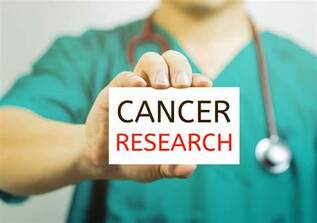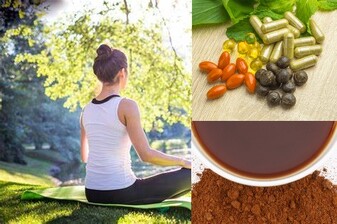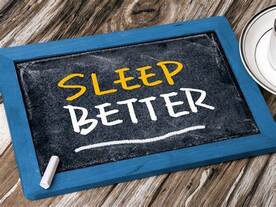
Each person’s body, and the organs within it, provide an array of microenvironments for a potential cancer to grow, or not grow. A question that I think has been relatively neglected in cancer therapy until recently, one that Stephen Paget touched on so long ago, is: How do we change the cancer microenvironment to make cancer cells more susceptible to chemotherapy?
We’ve spent an enormous amount of time thinking about the genetics and the genomics of cancer cells and how to direct therapies against the gene products they make. But I’ve always been more interested in looking at their microenvironment—their home.
Why is it that the cancer cells can exist in a particular environment, and can you change the homes that foster these cells, allowing them to live and survive? Why do certain cancers only metastasize to certain places in the body? What about those homes allow those cancers to exist? Why don’t they go to other places?
HOW CAN WE CHANGE THE INTERNAL ENVIORNMENT OF OUR BODY TO MAKE IT HARDER FOR CANCER CELLS TO LIVE AND SURVIVE?
Studies on this are of course difficult and varied but in general we do know a few environments inside the body that affect cancer cells. In his manuscript: Immunity, Inflammation, and Cancer, Dr. Sergei I. Grivennikov, explains: Inflammatory responses play decisive roles at different stages of tumor development, including initiation, promotion, malignant conversion, invasion, and metastasis.
This would stand to reason that if we improve our natural inflammatory response and immune function that we could decrease our risk for certain types of cancer. How do we do that? I like to think about this in a few areas:
- Activity
- Nutrition
- Chemistry - Medication, Supplementation and Compounding
For number 1. What activities could you do that would improve your immune system and inflammatory systems?
- Exercise - Exercise promotes significant improvements in clinical, functional, and in some populations, survival outcomes and can be recommended regardless of the type of cancer - Stout NL, Baima J, Swisher AK, Winters-Stone KM, Welsh J. A Systematic Review of Exercise Systematic Reviews in the Cancer Literature
- Cyclical Prolonged Fasting - Prolonged fasting (>3 days) and Fasting Mimicking Diet programs have been shown to be effective at improving inflammatory markers such as IGF-1 and C-Reactive Protein. They also show benefits with total body fat, glucose and cholesterol. These and other markers affected by fasting or fasting mimicking diets, have been strongly implicated in age-related diseases such as cancer.
- Whole Body Cryotherapy - Studies done on athletes, atherosclerotic risk patients and inflammatory disease patients have shown that consistent exposure to whole body cryotherapy can alter the expression of inflammatory markers. This is similar to the effects of fasting above where if we can perform activities that mitigate risk factors we achieve some level of impact on our overall risk and recovery from diseases such as cancer.
- PEMF Therapy - Pulsed Electromagentic Field Therapy has been studied in a variety of cancer types. It has been shown to improve cytotoxicity of breast cancer cells when combined with other therapies and decreases the stability of tumor cells allowing easier treatment. PEMF Therapy increase oxygen delivery to the cells in our body improving cell health and potentially decrease abnormal cell growth in the process.
Nutrition in cancer could be a book in itself but quite a bit of research has been done on types of diets and cancer:
- The Ketogenic diet, a high-fat, low-carbohydrate diet with adequate amounts of protein, appears to sensitize most cancers to standard treatment by exploiting the reprogramed metabolism of cancer cells, making the diet a promising candidate as an adjuvant cancer therapy.
- Plant Based Diets or vegetarian diets may also confer some improved risk of cancer. In the study: Tantamango-Bartley Y, Jaceldo-Siegl K, Fan J, Fraser G. Vegetarian diets and the incidence of cancer in a low-risk population. Cancer Epidemiol Biomarkers Prev. 2013, researchers found statistically significant benefits to cancer risk in vegetarians and the lacto-ovo-vegetarian diets seem to confer protection from cancers of the gastrointestinal tract.
- Adding Protective Foods to your healthy diet can also help improve your risk profile. Foods such as broccoli sprouts and other crucifer sprouts contain high amounts of sulforaphane which has the potential to improve the liver’s ability to detoxify environmental pollutants, carcinogens and other toxins. Increase your consumption of sprouts in addition things like:
- Carotenoids, or carotenes, found in red, orange, yellow, and some dark-green vegetables
- Polyphenols, found in herbs, spices, vegetables, tea, coffee, chocolate, nuts, apples, onions, berries, and other plants
- Allium compounds, found in chives, garlic, leeks, and onions
- Antioxidants. Examples include beta carotene, selenium, and vitamins C and E. Antioxidants protect against oxidants, which are substances that can lead to cell damage.
Lastly chemical change with medications, compounds and supplements is vital to our prevention and treatment of cancer.
“For a century we’ve been looking for magic bullets, but maybe all we need is a series of pretty good bullets. So that’s a different sort of thinking process.” – Bob Gatenby
- Dr. Gatenby explains this phenomenon using a drug called Abiraterone, the idea is to use drugs that already exist, but use them better
- Without taking this completely deep I'd just like to say that great advances have been made in neoadjuvant therapies, immunotherapies and other medical treatments. These can make the internal environment around the cells much more advantageous for us to fight and kill the cells.
- Vitamin D3. Research continues to demonstrate that vitamin D deficiency not only directly increases risk of some cancers, but it can also lead to other risk factors
- Omega-3s. Found in fatty fish and some nuts and seeds, these essential fatty acids have been shown to help reduce cancer risk and improve recovery from cancer treatment.
- Bitter melon. Extracts derived from this small fruit with bumpy green skin show great promise against pancreatic and breast cancers in particular.
- Medicinal Mushrooms. Including (but not limited to) turkey tail (Trametes versicolor), maitake (Grifola frondosa), and reishi (Ganoderma lucidum) provide anti-carcinogenic effects.
- Curcumin. This is the biologically active polyphenolic compound found in the spice turmeric is a great systemic anti-inflammatory.
- Folate, biotin, choline and inositol, niacin and vitamin B12 are all B vitamins that help in the cancer fight. Niacin has been shown to kill cancer cells. Egg yolk, greens and whole grains are the best sources.
Join The Fight
I hope you'll join in this fight to continue raising money for more and better research for cancer.
Derrick Hines, DPT, MS OMT
Immunity, Inflammation, and Cancer (nih.gov)
Science Journals — AAAS (prolon.it)
A Systematic Review of Exercise Systematic Reviews in the Cancer Literature (2005-2017) - PubMed (nih.gov)
Physical Activity and the Risk of Liver Cancer: A Systematic Review and Meta-Analysis of Prospective Studies and a Bias Analysis - PubMed (nih.gov)
Microbiome in cancer progression and therapy - PubMed (nih.gov)
Possible role of diet in cancer: systematic review and multiple meta-analyses of dietary patterns, lifestyle factors, and cancer risk - PubMed (nih.gov)
Whole-Body Cryotherapy Decreases the Levels of Inflammatory, Oxidative Stress, and Atherosclerosis Plaque Markers in Male Patients with Active-Phase Ankylosing Spondylitis in the Absence of Classical Cardiovascular Risk Factors - PubMed (nih.gov)
Whole-Body Cryostimulation Improves Inflammatory Endothelium Parameters and Decreases Oxidative Stress in Healthy Subjects - PubMed (nih.gov)
The effect of prolonged whole-body cryostimulation treatment with different amounts of sessions on chosen pro- and anti-inflammatory cytokines levels in healthy men - PubMed (nih.gov)
PEMF Fights Cancerous Tumors - PEMF-TECH
PEMF and Breast Cancer - PEMF-TECH
Vegetarian diets and the incidence of cancer in a low-risk population - PubMed (nih.gov)
Ketogenic diet in the treatment of cancer - Where do we stand? - PubMed (nih.gov)



 RSS Feed
RSS Feed